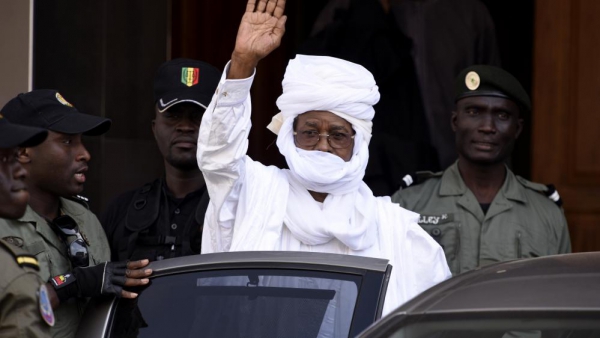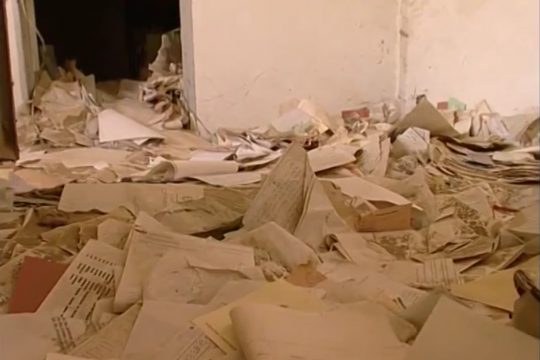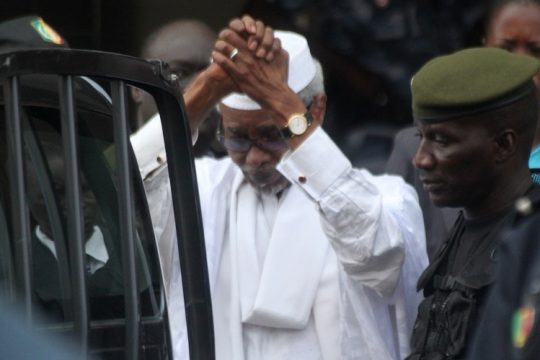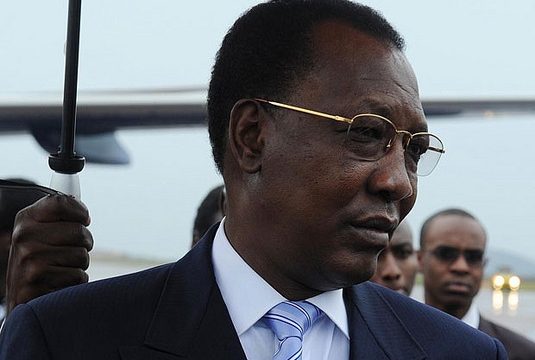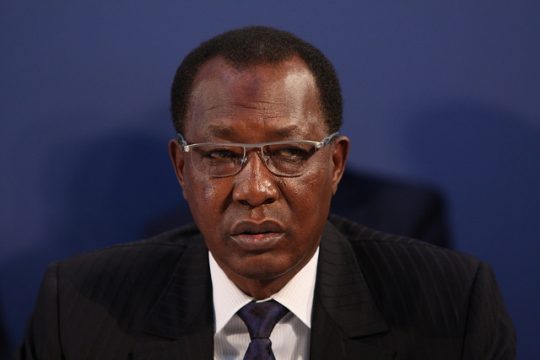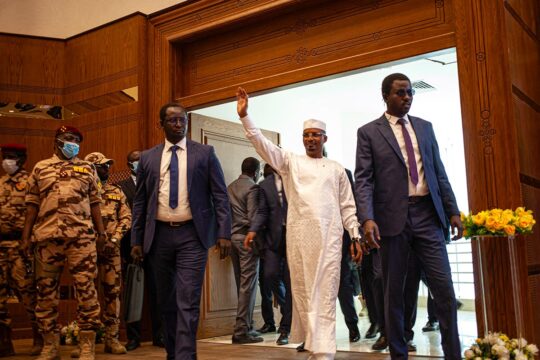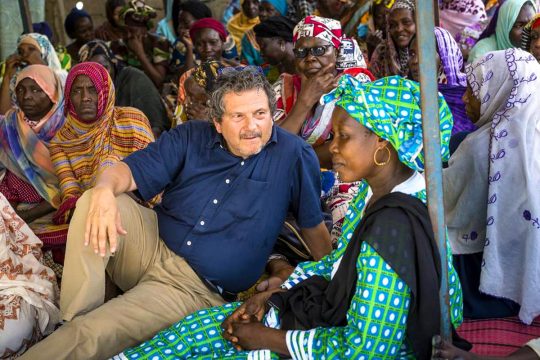True to form, former Chadian President Hissène Habré refused to turn up in person on Monday at the resumption of his trial in Dakar for crimes against humanity, war crimes and torture.
The Registrar nevertheless read out his indictment, marking the start of procedures to examine the evidence.
Habré is on trial before the Extraordinary African Chambers (EAC), a special court set up to try those presumed most responsible for the worst violations of international humanitarian law committed in Chad from 1982 to 1990, when Habré was in power.
Habré is the only accused. His trial opened on July 20 but was adjourned the next day for 45 days to give his court-assigned lawyers time to study the files. But the former president refuses to even talk to them. As the trial resumed Monday, the Court therefore ordered that Habré be brought before it by force, and a court bailiff was sent to serve him with an “order to appear immediately”.
As he was brought to court, his supporters protested loudly at this forced appearance.
Security forces had to escort some of them out of the Justice Palace so the Registrar could continue reading the 167-page indictment.
Meanwhile Habré, who could face up to 30 years in jail, remained surrounded by his prison guards, whilst gendarmes patrolled the courtroom.
Some 100 witnesses and victims are expected to testify during the trial, which is expected to last two months.
“Habré is no victim”
The ex-president, now 72, must answer for thousands of political assassinations and systematic torture perpetrated mainly by his infamous political police, the Directorate of Documentation and Security (DDS).
“Habré’s ranting is apparently an attempt to play the victim,” said Human Rights Watch counsel and spokesperson Reed Brody. “He wants people to think that he’s somehow been wronged, that a dark conspiracy is plotting against him. But Habré is no victim.”
“There are real victims in the court today, however: some of the survivors of prisons under his rule,” Brody continues in comments published on the Human Rights Watch website. “They watched in satisfaction, knowing that their day in court has finally come. If Habré has a sense of decency he will cease his theatrics and look them in the eyes as they tell the stories of the horrific things that happened to them.”
As usual, the only lawyers recognized by Habré, Ibrahima Diawara of Senegal and François Serres of France, are continuing their fight with declarations outside the court. In a letter to EAC President Gberdao Gustave Kam of Burkina Faso, lawyer Serres echoes the well-worn words of his client rather than tackling the facts of the case. “Mr. Gberdao Gustave Kam, one thing is for certain, you are not Africa, you are not judging Africa, nor Chad nor the Chadian people in their unity and diversity,” he writes. “You are judging a man, and only one, the liberator of his country, who was singled out by a conference of Heads of State in debt to Gaddafi as the one who should be put on trial through a political decision on a mandate that violates judicial decisions in his favour handed down in Senegal in 2000 and 2001.”
Until his fall at the end of 1990, Hissène Habré enjoyed the support of France and the US against Muammar Gaddafi’s Libya, which was accused at the time of supporting international terrorism.
“Idriss Deby holds the purse strings”
For Serres, Judge Kam, who is sitting on the case with two Senegalese judges, “is not a judge but a mere delegate of the African Union”.
In the rest of his letter, Serres denounces “the discriminatory nature of the prosecution, which is limited in time and place, and the choice of supposed victims as witnesses, which is controlled by the government of Idriss Deby (current President of Chad), whose financial links with the EAC judges have been proven.”
The Chadian government is the biggest donor of the EAC.
Serres then turns his attention to Senegal, which reached an agreement with the African Union to set up the special court. He again takes up an argument dear to Habré, who spent tranquil days in Senegal until the election of current President Macky Sall.
“The Senegalese regime of Macky Sall, and especially Sidiki Kaba (current Senegalese Minister of Justice) bowed to Western pressure and Chad’s refusal to send other suspected accomplices to the court as it organized puppet trials aimed only at exonerating Idriss Deby from his own responsibilities and making public the real history of Chad from the 1970s to the current time.”
“And one last piece of advice, Mr. Judge,” the lawyer continues. “President Habré does not need lawyers assigned by the court. (…) The man who freed his country does not need servants of injustice, disguised as lawyers and paid by Idriss Deby.”
And he concludes: “Accountancy is a more or less exact science: Idriss Deby has paid; all that remains is to write the judgment.”
The Court expects to hand down its verdict on the morning of October 28.




